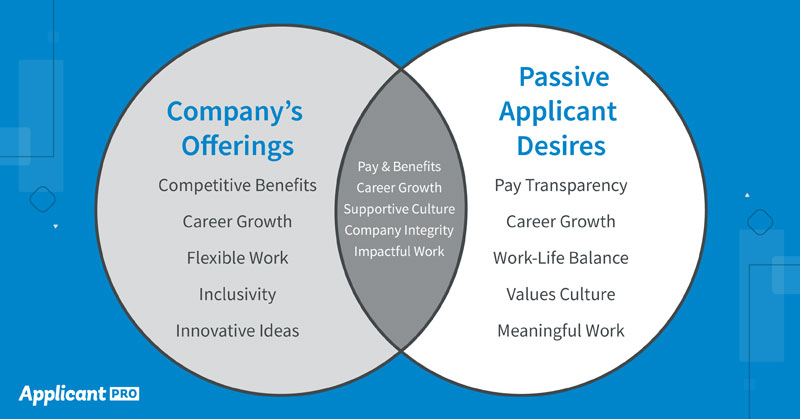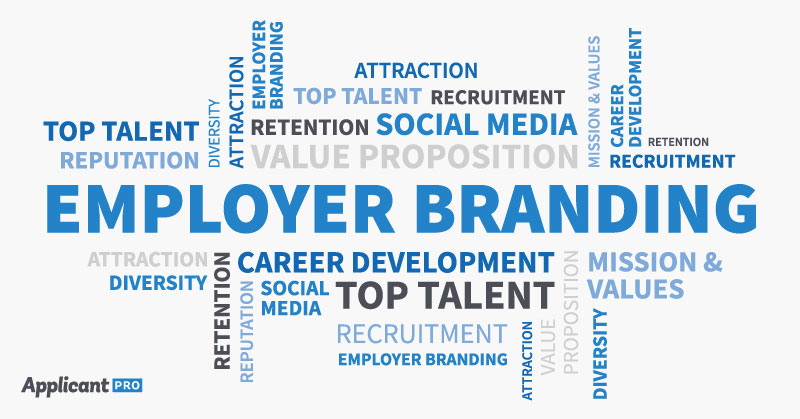
Is Your Industry Vocabulary Harming Your Job-Seeker Pool?
Just like any group or clique, industries eventually form their own slang or acronyms for terms. It makes it easier to communicate with colleagues and other people in your profession and could even be considered “hip”. But could your industry jargon be harming your job seeker pool? Most of the time these terms can cast a better light on the job itself, but job seekers may not be up to speed on your industry’s change of terms.
Industry Jargon
Here’s a great example. Just last week I was talking to one of our clients who’s the owner of a restaurant. She was having a hard time generating applicants for server jobs in their restaurant. Since I’m an outsider to the restaurant industry, “servers” in the tech field mean something completely different than servers in a restaurant. I honestly wasn’t completely clear on what a server actually does. Is it the person who sits me down and brings my drinks or the person that comes to my table and takes my order? People within the restaurant industry might scoff at the “obvious” difference, but those outside the industry might have no idea.
Was using the word “server” in her job postings actually harming her applicant pool? At first she insisted that the word “server” is how they describe the job, but also admitted that they weren’t getting enough job seekers for the job – which was puzzling with high school students and college students off for the summer. I asked what appeared to me to be a pretty smart question: “Well isn’t this just a waitress or waiter job”? She responded that the restaurant industry no longer uses the word waiter and waitress, server is more politically correct. I’m guessing it’s because they prefer to leave gender out of it (or maybe another reason), but either way they figured that server had more positive implications.
Attract More Highly Qualified Applicants
We spend countless hours researching the most effective, easy to implement, and FREE strategies that will dramatically boost your qualified applicant flow.
Keywords, Job Boards, and Search Algorithms
All of these justifications may make perfect sense for why she decided to emphasize “server” in their job title instead of waiter or waitress. However, most job boards these days (especially the job aggregators that Applicant Pro posts too) are search-based. These includes sites like Indeed, Simply Hired, Glass Door, Career Builder, and Monster. They use what’s called a search algorithm to decide which jobs to display for a job seeker. When a job seeker comes to one of these sites, they try to conduct a keyword search that will retrieve the most accurate result for their skillset or desired job. The search algorithm returns and ranks the results based on relevance or how well the job relates to the words used in the search. So if a job seeker goes to Indeed.com and types in the word “server”, then most likely only the server jobs will show up. But if its algorithm is smart enough to include synonyms such as waitress & waitress, then those jobs may be included in the returned results.
Use Common Terms, Not Industry Terms
Job seekers are certainly going to look for as many jobs as possible to increase the chances of getting hired, but I highly doubt they would search as far as the 20th page for job listings. So you want to make sure you show up at least in the top 3-5 pages. When you create a job ad and you’re deciding which types of words to use to refer to the job title and the job description, keep in mind that generating job seekers is about understanding what their vocabulary is – not using yours. Just because your industry has determined that the word “server” now means waitress/waiter, doesn’t mean that the majority of job seekers have come to that same conclusion. Better yet, use all three of those words. You don’t have to choose just one or the other. Since most job boards have available space for 6-8 keywords, you need to make sure you include all the common terms an applicant might use.
Utilizing The Right Keywords = More Applicants
This client of mine, who typed in a job posting for a part-time restaurant server, missed out on the opportunity to add 3-4 more words into her title that could have helped capture more applicants. I rewrote her ad and I used the title “part-time restaurant server – food service waiter and waitress” instead (adding food service to expand the scope). This effectively increased the number of applicants who saw her ad, responded, and completed applications by 3x times overnight. I would also want to use these same words intermixed in my job description. I should not just use the word server in my job description but also waiter and waitress, not just restaurant but also food service. Simply put, you need to use the vocabulary of all potential job seekers, not just the vocabulary of the few job seekers who may be more up-to-date on our industry terms.
Here’s a recap:
- Don’t use heavy industry terms, use keywords that a common person would understand
- The job title is the most important piece of your ad when it comes to determining how high your job will rank in the search results “Part-time restaurant server – food service waiter and waitress”
- Most job boards have available space for 6-8 keywords, you need to make sure you use all the common terms an applicant might use.

Increase qualified applicant flow across the board.
Download this exclusive guide to improve your qualified applicant flow.
Share this article
Related Articles

Unlocking the Hidden Talent Pool: How to Attract Passive Candidates
Boost your hiring strategy! Learn how to attract passive candidates with ApplicantPro's expert tips, insights, and stats for a stronger talent pipeline.

Building Your Employer Brand: Why it Matters and How to Do it Right
Build a strong employer brand to attract top talent, reduce turnover, and boost morale. Learn actionable steps to create an authentic, compelling company reputation.

What is an ApplicantPro Market Analysis?
Discover how our Market Analysis can help you stand out from the competition and attract top talent. From competitor pay reviews to job-seeker personas, our Recruitment Marketing experts provide actionable insights to improve your hiring process.